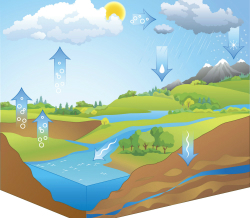New solution for life cycle assessments
Life cycle analysis (LCA) is a common tool used to determine the environmental impact of a product or service. Several different aspects, ranging from land use to climate change, are evaluated. A 'cradle-to-grave' scope is employed which takes raw materials, transport and even recycling into account. To date, groundwater - a natural resource of critical importance - has not been properly addressed by LCA. The 'Revising the role of groundwater in life cycle assessment' (GWAT-LCA) project sought to resolve this by encouraging co-operation between hydrogeology and LCA experts. A special approach was required since groundwater differs from other 'products'. While it is renewable, it is not evenly distributed. Similarly, negative impacts are more local than global in nature. The answer required digging deeper than previous superficial screenings and evaluating groundwater's multiple roles and users. The resulting conceptual framework has been transferred to a common GIS software tool. This has been applied during GWAT-LCA to the largest consumer of groundwater worldwide - the agricultural industry, specifically wheat farming. An LCA was also performed on ground-source heat pumps used in geothermal applications, which revealed a surprisingly significant impact related to powering such equipment. More interesting findings are expected as the framework becomes more widely used.
Keywords
Life cycle assessment, groundwater, agriculture, wheat farming, geothermal, ground-source heat pump




